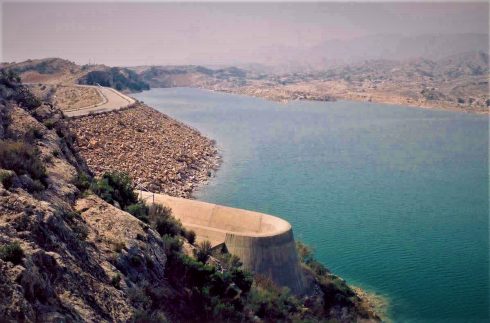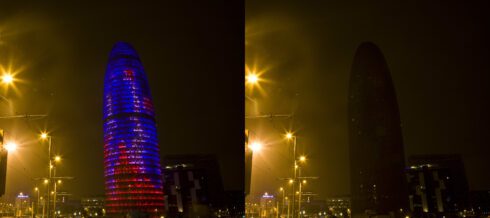Exclusive
A TRIO of ex pats are being sued for opposing a huge golf course project on 800 hectares of virgin woodland inside a Unesco Biosphere Reserve.
Developers behind the controversial Los Merinos scheme in Ronda are demanding up to 22 million euros in damages after the ex pats signed petitions and were quoted opposing the project in the media.
The consortium behind the 90-million-euro double golf course scheme, which comprises 800 homes and three luxury hotels alongside the Sierra de las Nieves national park, claims that a number of investors have pulled out due to their actions.
The foreigners – who have been quoted in the media, citing concerns over water and other environmental issues – are convinced they will win.
The trio – Britons Alastair Boyd and David Milnes and German Petra Wiegmink – insist they have a legal and moral right to defend the environment in which they live.
They have been backed by Spain’s Green Party, who this week tabled two questions in Parliament demanding an investigation into why they have faced “mafia-style harassment” as a result of their opposition.
While none of the trio were able to comment this week, close friends revealed the stress they have been put under for merely giving their point of view.
“They are being accused of incredible crimes, which they believe amount to little more than freedom of speech,” explained one.
“They are law abiding citizens who contribute to the local community and are well integrated. All they have done is object to a project that they believe is bad for the environment.”
Accused of a litany of crimes – including slander, coercion, intimidation and threats – the lawsuit alleges they have caused the loss of 22 million euros of investment due to their public opposition.
“It is a very serious matter but they are convinced the law is on their side. They are rightly defending the environment and justice will be done.”
Alastair Boyd, also known as Lord Kilmarnock and an active member of the House of Lords for 20 years, has taken the allegations particularly badly, according to friends.
The 80-year-old writer – who has published a series of celebrated books about the area, including Sierras of the South and The Road from Ronda – is extremely anxious about the accusation, which is due to have its first hearing in the Ronda courts this month.
A friend of the Cambridge-educated novelist, who has lived in the area for nearly 30 years, said: “He has been a different person since receiving this writ and I am very worried about him.
“He would have taken this in his stride a decade ago, but he is now growing old and frail and it has hit him for six.
“It is particularly scandalous given how much he has done for the area over the last half century. He is a real friend of Ronda and his books have brought an incalculable number of tourists here as a result. Is this a fair way to treat an old man for giving his point of view?”
The trio however are not the only ones to have received writs from the developers.
In total, nine individuals have been singled out by the raft of companies backing the controversial scheme, which is currently under investigation by the Andalucian Supreme Court (TSJA).
The leaders of local ecologist groups, as well as members of Ronda’s Patrulla Verde – or Green Police – have also been issued with denuncias.
A pair of policemen Paco Moreno and Juan Terroba have received 11 writs between them.
One however, brought by the company JM Legion Espanola 1 SL on November 8 has already been thrown out of court.
The company claimed local ecologists had falsified documentation and carried out other false actions against the project.
In court papers issued, it claimed, 100 of 579 signatures on a petition against the scheme presented to the town hall, were fake.
The court however has ruled against this, with local environmental group Ecologistas en Accion now planning to counter sue for damages.
In addition, many local residents have also come out publicly to support the nine accused, with more than 400 local professionals, including doctors, journalists and lawyers, taking out an advert in a local paper supporting them.
And in further support for the group, national Green Party spokesman Francisco Garrido this week demanded an investigation into the campaign of intimidation and threats against anti-speculation groups in the Province of Malaga.
Tabling two questions in Madrid’s Parliament, he drew attention, in particular, to the “campaign of insults and defamation” against the individuals opposed to the “urban macro-project” of Los Merinos.
In the report, he claims there is “a mafia-style harassment that has come out of the alliance between politicians and developers.”
The scheme, meanwhile, has come into more trouble with construction work temporarily halted after it was discovered the developers were using a large piece of industrial machinery without a licence.
The Junta ordered the stoppage after it emerged the machine, which grinds large rocks down to gravel, had been used at the estate.
The consortium, known as the Promociones Club de Campo y Golf de Ronda, faces a fine of up to 60,000 euros, to go along with an earlier fine of 300,000 euros levied for the illegal felling of trees.
While the project is legal according to the 1993 Ronda urban plan, which was approved by the Junta in 1994, the environment department claims there have been various infractions and has ordered work to stop.
In particular it cites the fact the developers only have permission to develop 25 per cent of land, when they are currently altering over 70 per cent.
There is also the issue of water, with the water board (the Cuenca Mediterranea Andaluza) still not approving plans to take water either from underground aquifers or from recycled sewage water from Ronda.
Initial intentions to take water from underground sources led to a series of protests last year with locals claiming it could deprive up to 10,000 people of water. A general strike organised in the village Cuevas del Becerro made national news, both on TV and print, and was even covered in British newspapers, such as the Guardian.
Work has continued, however, despite the local Málaga environment minister Ignacio Trillo insisting it should not go ahead until the water supply problem is resolved. “It would be a barbarity if they began (work) before it is arranged,” he said.
Despite the controversy, the Ronda town hall continues to support the scheme. It has allowed posters and banners supporting the project to go up around the town – even on the cathedral – and has so far taken up to two million in advance licence payments for the scheme.
Ronda mayor Antonio Marin Lara insisted there was more than enough water in Ronda to support the scheme. He added the developers were doing everything they could to comply with the requirements of the water board and the scheme was “entirely legal” as it had been passed in 1994 before the Unesco protection status came in.
“They are hoping to meet all the requirements, but there is certainly no shortage of water and we dispute it will affect so many people.”
The scheme is also supported by the local chamber of commerce which claims the project will “help the region to pull out of the economic crisis it has been in for many years.”






